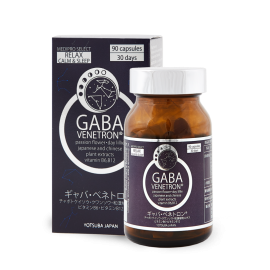Meteorosensitivity: What Is It, Main Symptoms, and Prevention Methods

“My knees are aching, it’s probably going to rain tomorrow.” “My head is splitting, it must be due to the weather change.” Many have heard such phrases, especially from older people. So, is there a connection between the weather and how we feel? What is meteorosensitivity? Who is at risk? Are there any magic pills for meteorosensitivity?
What Is Meteorosensitivity
Experts refer to meteorosensitivity as a modern “civilization disease.” However, it’s not an illness or pathology, but a sensitivity of the body to changes in weather conditions: fluctuations in atmospheric pressure, sudden cold or heat waves. A person may experience various meteorosensitivity symptoms for 1 to 4 days.
Experts believe the main cause of this phenomenon is humans’ disconnection from nature. Today, people lead sedentary lifestyles, escape heat with air conditioners, and can’t imagine winter without central heating and space heaters. As a result, the body doesn’t need to use its adaptive abilities, which eventually “shut off,” leading to discomfort with any weather change.
According to a study conducted in the USA, symptoms of meteorosensitivity vary among people. However, residents of rural areas hardly noticed weather changes, while those living in large cities had more difficulty coping with weather fluctuations, especially when intellectual work prevails over physical activity, and outdoor time is minimal.
What Are the Symptoms of Meteorosensitivity?
“I get headaches when the weather changes” is a common complaint among patients. However, meteorosensitivity symptoms can vary greatly and depend on the individual’s chronic conditions, age, and lifestyle. The most common symptoms are:

The Impact of Atmospheric Pressure on Humans
Depending on the severity of symptoms, meteorosensitivity is classified into the following degrees:
Who Is Most Affected by Weather Changes?
People with chronic conditions such as heart disease, bronchial asthma, hypertension, and arthritis are most likely to react to weather changes. Those who have suffered head injuries or have autonomic nervous system disorders are also at higher risk.

Diagnosis and Treatment of Meteorosensitivity
Doctors emphasize that meteorosensitivity is not a disease, so there is no specific treatment. If you experience meteorosensitivity, medication can only relieve certain symptoms. However, it’s important to identify and minimize the factors that worsen your condition.
To choose the most effective method for managing meteorosensitivity, consult a doctor: a general practitioner, cardiologist, or rheumatologist. They can suggest ways to reduce meteorosensitivity symptoms and prescribe medication if necessary.
Preventing Meteorosensitivity
Maintaining a healthy lifestyle is the best way to combat weather sensitivity. In particular, it’s essential to revise your diet, avoid fatty and fried foods, and drink plenty of water. Avoid overconsumption of coffee and energy drinks. Doctors affirm that there is a connection between meteorosensitivity, age, health, and emotional state. Therefore, it’s crucial to manage stress and anxiety levels to improve overall well-being.
Specialist Recommendations for Reducing Meteorosensitivity
Unsure how to deal with meteorosensitivity? If you have chronic conditions that may worsen due to weather changes, consult a doctor.
If you don’t have any serious health problems, follow these recommendations to reduce meteorosensitivity symptoms:

What Medications Help with Meteorosensitivity?
There is no “magic pill” that can quickly and instantly relieve all meteoropathy symptoms. However, if you know how your body reacts to weather changes, you can be more attentive to your health during those times. Treatment should focus on symptom management and preventing the exacerbation of conditions.
Looking for a reliable way to cope with meteorosensitivity? Properly selected dietary supplements and vitamin-mineral complexes can increase your body’s adaptability and help you weather atmospheric fluctuations. Herbal teas are also beneficial for normalizing the nervous system.
If you want to avoid the negative effects of meteorosensitivity, treat any chronic conditions first. It’s also important to get tested for vitamin, mineral, and hormone deficiencies. If deficiencies are found, they can be compensated with dietary supplements.
Vitamins for Improving Well-being
Japanese vitamins and dietary supplements, which you can buy at the Yotsuba Japan online store, are effective and safe. They have no side effects or allergic reactions.
For example, Squalene and Arctic Omega-3 capsules improve overall well-being. They are recommended for strengthening the immune system and boosting the body’s resistance to infections. Regular use of the product helps restore the body's energy and resources, improve memory, and reduce the effects of stress.
GABA VENETRON capsules are recommended for relieving anxiety and depressive states. They help regulate sleep and reduce nervous tension.
Contact the consultants at Yotsuba Japan’s online store, and they will help you choose the dietary supplements and vitamins that will provide excellent results!
What Is Meteorosensitivity
Experts refer to meteorosensitivity as a modern “civilization disease.” However, it’s not an illness or pathology, but a sensitivity of the body to changes in weather conditions: fluctuations in atmospheric pressure, sudden cold or heat waves. A person may experience various meteorosensitivity symptoms for 1 to 4 days.
Experts believe the main cause of this phenomenon is humans’ disconnection from nature. Today, people lead sedentary lifestyles, escape heat with air conditioners, and can’t imagine winter without central heating and space heaters. As a result, the body doesn’t need to use its adaptive abilities, which eventually “shut off,” leading to discomfort with any weather change.
According to a study conducted in the USA, symptoms of meteorosensitivity vary among people. However, residents of rural areas hardly noticed weather changes, while those living in large cities had more difficulty coping with weather fluctuations, especially when intellectual work prevails over physical activity, and outdoor time is minimal.
What Are the Symptoms of Meteorosensitivity?
“I get headaches when the weather changes” is a common complaint among patients. However, meteorosensitivity symptoms can vary greatly and depend on the individual’s chronic conditions, age, and lifestyle. The most common symptoms are:
- Muscle weakness
- General discomfort
- Headaches, dizziness
- Fatigue, drowsiness
- Muscle aches
- Joint pain
- Loss of appetite
- Fluctuations in blood pressure
- Shortness of breath, irregular heartbeat
- Mood swings
- Ringing in the ears
- Increased anxiety, irritability

The Impact of Atmospheric Pressure on Humans
Depending on the severity of symptoms, meteorosensitivity is classified into the following degrees:
- Mild – slight discomfort, no significant physical changes.
- Moderate – noticeable changes, often blood pressure fluctuations.
- Severe – disruptions in the nervous, cardiovascular, or other bodily systems, with possible exacerbation of chronic conditions.
Who Is Most Affected by Weather Changes?
People with chronic conditions such as heart disease, bronchial asthma, hypertension, and arthritis are most likely to react to weather changes. Those who have suffered head injuries or have autonomic nervous system disorders are also at higher risk.

Diagnosis and Treatment of Meteorosensitivity
Doctors emphasize that meteorosensitivity is not a disease, so there is no specific treatment. If you experience meteorosensitivity, medication can only relieve certain symptoms. However, it’s important to identify and minimize the factors that worsen your condition.
To choose the most effective method for managing meteorosensitivity, consult a doctor: a general practitioner, cardiologist, or rheumatologist. They can suggest ways to reduce meteorosensitivity symptoms and prescribe medication if necessary.
Preventing Meteorosensitivity
Maintaining a healthy lifestyle is the best way to combat weather sensitivity. In particular, it’s essential to revise your diet, avoid fatty and fried foods, and drink plenty of water. Avoid overconsumption of coffee and energy drinks. Doctors affirm that there is a connection between meteorosensitivity, age, health, and emotional state. Therefore, it’s crucial to manage stress and anxiety levels to improve overall well-being.
Specialist Recommendations for Reducing Meteorosensitivity
Unsure how to deal with meteorosensitivity? If you have chronic conditions that may worsen due to weather changes, consult a doctor.
If you don’t have any serious health problems, follow these recommendations to reduce meteorosensitivity symptoms:
- Avoid alcohol and smoking
- Sleep for at least 8 hours a night
- Maintain a balanced, varied diet
- Exercise daily
- Take daily walks outdoors
- Minimize stress and manage emotional health

What Medications Help with Meteorosensitivity?
There is no “magic pill” that can quickly and instantly relieve all meteoropathy symptoms. However, if you know how your body reacts to weather changes, you can be more attentive to your health during those times. Treatment should focus on symptom management and preventing the exacerbation of conditions.
Looking for a reliable way to cope with meteorosensitivity? Properly selected dietary supplements and vitamin-mineral complexes can increase your body’s adaptability and help you weather atmospheric fluctuations. Herbal teas are also beneficial for normalizing the nervous system.
If you want to avoid the negative effects of meteorosensitivity, treat any chronic conditions first. It’s also important to get tested for vitamin, mineral, and hormone deficiencies. If deficiencies are found, they can be compensated with dietary supplements.
Vitamins for Improving Well-being
Japanese vitamins and dietary supplements, which you can buy at the Yotsuba Japan online store, are effective and safe. They have no side effects or allergic reactions.
For example, Squalene and Arctic Omega-3 capsules improve overall well-being. They are recommended for strengthening the immune system and boosting the body’s resistance to infections. Regular use of the product helps restore the body's energy and resources, improve memory, and reduce the effects of stress.
GABA VENETRON capsules are recommended for relieving anxiety and depressive states. They help regulate sleep and reduce nervous tension.
Contact the consultants at Yotsuba Japan’s online store, and they will help you choose the dietary supplements and vitamins that will provide excellent results!
Posted:
September 26, 2024







Log In